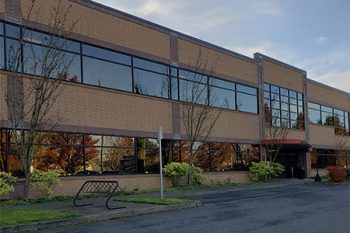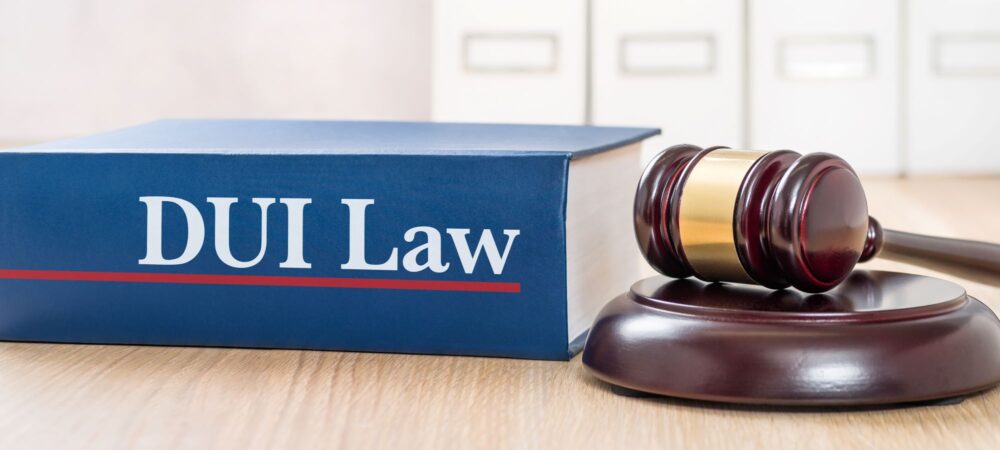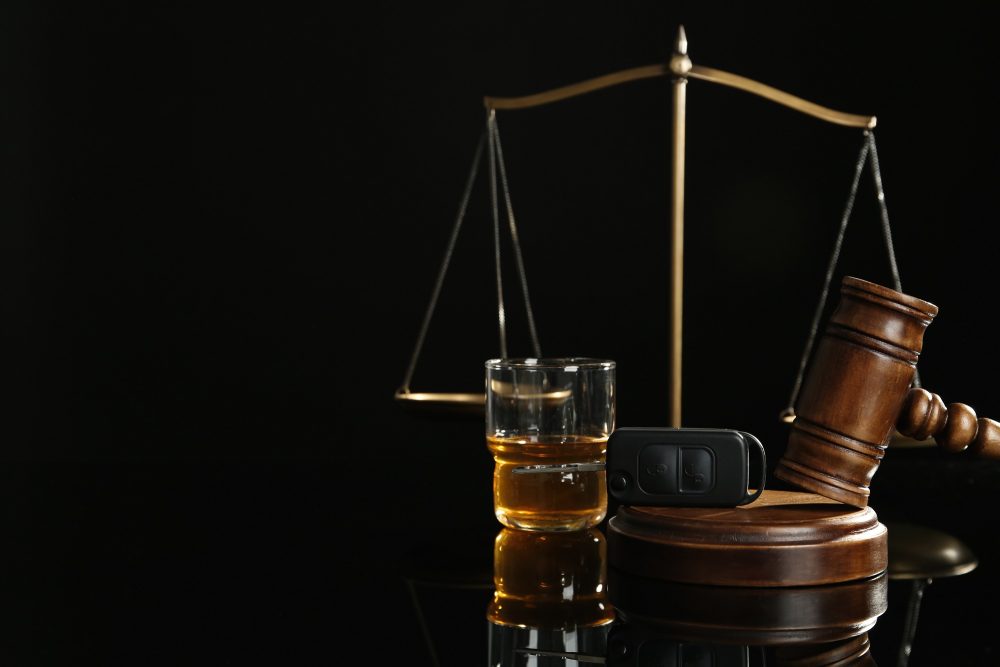What Happens When You Get A DUI?

DUI Lawyer

If you or someone you know has been charged with a DUI, then you are likely wondering what happens next. What are my rights? What are my options? What is likely going to happen to my case?
Many outcomes can occur when you get a DUI. But one thing is for sure, hiring an experienced criminal defense attorney is the best thing you can do for your case. Keep reading for more information and frequently asked questions about DUI’s.
DUI Attorney
The charge of DUI is one of the most complex and technical areas of criminal law. Fighting the charge requires a DUI lawyer with a keen understanding of how the court process works and how to fight it. At Carley Legal Services, we have successfully handled thousands of criminal cases for our clients and can help you. Tom takes the time to go over the case with you, investigate your case, explain your options, and set you up in the best possible position for a positive resolution. We provide professional, practical, and effective representation at an affordable cost.
When charged with a DUI, consult with a skilled legal professional before proceeding any further.
The consequences of a DUI conviction can be dire – resulting in jail time, license suspension, high-risk SR-22 insurance, installation of an ignition interlock device, alcohol counseling, and thousands of dollars in court costs. Do not plead guilty to a DUI before talking to an attorney with experience in fighting this charge.
When Hiring an Attorney
You need a professional that actively keeps up with the changes in the law and has experience in handling the complex legal issues related to:
We understand the unique and finer aspects of each DUI and offer honest and practical advice on how best to proceed with your charge. We understand when is the smartest time to settle, and when a case needs to go to trial. We offer a free consultation to discuss your case. If you got charged with a DUI, contact us today.
Field Sobriety Tests
Sound familiar?
Field Sobriety Testing is one of the most well-known aspects of a DUI. Field sobriety tests are designed to determine whether or not you are impaired. However, it is essential to know that these tests are prone to error. An officer will give several complicated instructions without repeating them, and the tests are difficult to perform even when sober. Sometimes police officers do not properly administer these tests. Far too often, officers are untrained, or they are lazy in their administration of these technical tests.
Moreover, even when administered properly, an officer can get it wrong – a police officer can misinterpret certain physical and medical conditions as signs of impairment. Field sobriety tests are not scientifically fool-proof. A competent DUI attorney can challenge the results of your Field Sobriety Tests.
The most common Field Sobriety Tests are the Horizontal Gaze Nystagmus test, Walk & Turn test, and One Leg Stand test. Each of these tests is designed to look at several different clues indicating intoxication. You have no legal obligation to take these tests, despite an officer pressuring you otherwise. Officers will often count the slightest errors against you and can exaggerate your performance on these tests. Usually, it is better to refuse the tests altogether.
At Carley Legal Services, we have the experience and understanding in the science behind field sobriety tests, the required warnings and advisements an officer must provide to you, and the complex protocol an officer must adhere to in administering these tests. We take the time to investigate your matter personally. If an officer has cut any corners during your investigation, it pays to have an experienced attorney on your side.
Breath Testing
“I only had two drinks. Is breath testing foolproof?”
Everyone has heard of the .08 limit. Many people do not realize that someone can be charged with a DUI even when their breath is under a .08 BAC. So long as an officer has probable cause to believe that your ability to drive has been affected to a considerable degree by alcohol or some other drug, they can arrest you for DUI or DWI.
In many DUI cases, an officer will offer you a roadside Portable Breath Test. If arrested for a DUI or DWI, the officer will likely take you to the station for a second breath test to determine your BAC. Police officers are required to comply with numerous legal regulations in advising you about and administering these tests.
You must consult with a skilled DUI defense attorney immediately because there are short time windows for you to dispute a license suspension and other court deadlines. If blow over a .08 or you refuse the breath test, the DOL will suspend your license. We are mindful of the short deadlines imposed by the DOL and work hard to make sure you maintain your ability to drive.
At Carley Legal Services, we pride ourselves on staying up to date with the science behind these breath testing machines, because these machines are not entirely foolproof. In other words, a .08 BAC does not always mean a .08. The most valid and accurate reading of your intoxication level is by drawing your blood. Instead, officers commonly rely only on breath tests. Many things can affect the reliability and accuracy of these breath testing machines. For example, certain medical conditions can affect the accuracy of the breath test.
Moreover, foreign substances such as chewing gum, tobacco, vomit, or even residual mouth alcohol can affect the accuracy of your breath test. Even more concerning, officers sometimes cut corners in their administration of these tests. It helps to have a skilled attorney examine your breath results. Contact today to discuss your case free of charge. It may be the smartest call you make.
DOL Suspension Hearings
If you get arrested for a DUI, then you are likely facing two cases: One in the courts, and the other with the Washington Department of Licensing (DOL). The DOL may move to suspend your license if you submitted to a breath test above a .08 or if you refused the breath test. DUI’s and DOL hearings are one of the more complex areas of law because even if you are successful in beating one entity, the other still has the power to suspend your license. We understand how important your license is – daily living becomes difficult, if not impossible. We dedicate the time to make sure you maintain the ability to drive.
How Long Could My License Be Suspended?
Under Washington law, a person whose BAC (blood alcohol concentration) is above a .08, or their marijuana THC levels were above 5 ng/mL, could have their license suspended for at least 90 days. If a person refuses a breath test, the DOL will suspend him/her at least one year. In many situations, the suspension could be longer.
What Can I Do About This?
You must file a DUI hearing request within seven days of your arrest, or the DOL can suspend your license.
If I Win my DOL Hearing, Then What Happens?
If you win your DOL hearing, your license will still be suspended by the judge if convicted of a DUI. Your attorney may be able to successfully negotiate for a resolution that does not involve a license suspension. Therefore, it is crucial to examine the case from every angle to defend both aspects of your case.
If I Am Suspended, Can I Still Drive?
Most likely, yes, but only under certain conditions. You would probably need to install an ignition interlock in any vehicle that you drive, obtain SR-22 insurance, and obtain a restricted ignition interlock license. The time of these restrictions varies from case to case. The DOL may have additional requirements to drive.
You have a right to contest your DUI license suspension by requesting a hearing with the DOL. DOL suspension hearings are paramount. It is crucial to connect with an attorney immediately. The law is ever-changing, and a good DUI lawyer knows how best to represent you in front of the DOL.
Ignition Interlock Device
An experienced attorney understands the complexities of the Department of Licensing and court requirements for an interlock device.
What Is An Ignition Interlock Device?
An ignition interlock device is a breath-testing machine installed in a motor vehicle. It requires the driver to blow into the machine before operating the car, and it can detect the presence of alcohol consumption.
In some cases, the judge will order someone to install it while the case is pending. In other situations, the judge will require an IID installation while on probation and during the time someone’s license is suspended.
How Long Must This Be In My Vehicle?
If you have a suspended license from a DUI, Washington law requires an IID in any vehicle that you drive. Sometimes it is judicially ordered as a condition of release while the case is pending. The length of time that it must be in your car depends on several factors, such as your breath test results, prior DUI history, and if you had underage passengers in your vehicle at the time of the incident.
If you have no previous DUI’s, you likely will need the ignition interlock device in your car for at least one year. If you have a prior DUI, the length of time increases to five years. Additionally, the Department Of Licensing requires your final six months to show zero positive readings for alcohol.
What Happens If The Machine Registers A Positive Alcohol Reading?
If there is any alcohol in your system at the time you blow into an ignition interlock device, then your car will not start. Additionally, the interlock company receives a positive reading report and then relays this information to the Department Of Licensing and the courts. It is important not to attempt to drive a motor vehicle if any alcohol is in your system.
If you have questions about your ignition interlock device, contact Carley Legal Services today. For more information about ignition interlock devices, you can visit the DOL website. If you need financial assistance for the cost of an ignition interlock device, the DOL may be able to assist you.
Deferred Prosecution

Deferred Prosecution is a rehabilitative treatment program where, upon its successful completion, the prosecutor will dismiss your DUI case. If you are facing a DUI charge, talk to an experienced DUI attorney today to see if this program is a good fit for you.
To qualify for the program, you must admit that you suffer from a drug/alcohol issue and that unless you receive treatment, you may receive another DUI in the future.
Deferred prosecution last for five years. During this time, you are not allowed to drink or consume any non-prescribed drugs. You must maintain law-abiding behavior during this time, as well.
Deferred prosecution is a rigorous program. For the first two years, you will be required to go to treatment and must submit to random UA’s. Additionally, you will be required to attend a Victim’s Panel. Depending on your criminal history and specific facts of your case, you will likely be allowed to drive only with a functioning ignition interlock device installed in your car, SR-22 insurance, and an ignition interlock license. You will be required to maintain contact with a probation officer throughout the five years. You must request permission to move or travel out of the area. And you will be liable for court costs.
For many people, Deferred Prosecution is an excellent option to receive treatment, get your life back on track, avoid jail time, and ultimately get the case dismissed. However, you do give up some important rights by entering into the program, including your right to go to trial.
Tom Carley understands the complexities of Washington DUI law. He will take the time to sit down with you, review your case, and explain your options.
Negligent Driving
DUI or DWI is not the only alcohol-related crime in Washington. Negligent Driving in the First Degree is a simple misdemeanor, carrying up to a maximum penalty of 90 days jail and a $1,000 fine. Negligent driving means that you carelessly operated a vehicle while showing signs of intoxication. There is no per se legal limit, like a .08 BAC for a DUI.
Negligent driving is a reduced charge from a DUI. A skilled defense attorney will know how to examine the case to fight for reduced charges. Tom Carley has defended hundreds of DUI charges. Because everyone’s situation is different, Tom Carley knows how to craft a unique solution in each matter to get the best resolution possible. It pays to have experience on your side.
Probation
What Is Probation? Why Is It Important?
In Washington, a gross misdemeanor such as a DUI carries a maximum of one year in jail and a $5,000 fine. Simple misdemeanors such as Negligent Driving 1st Degree carries a maximum of 90 days in jail and a $1,000 fine.
Most criminal convictions typically result in the court imposing probation time upon you. In Washington, DUI’s usually carry five years probation. Reduced charges such as Negligent Driving or Reckless Driving carry a maximum of 2 years.
How does probation work?
Typically the judge will suspend some of your sentence upon the condition of staying out of trouble and abiding by other terms. If you violate any of those conditions during probation, the judge has the power to impose the suspended time.
Far too often, people are not aware of their conditions of probation and accidentally violate the law. We often see violations for someone arrested on new charges – such as Driving With a Suspended License, Ignition Interlock Violation, or even an additional DUI charge – or someone who fails to complete their court-ordered classes. Violations of these conditions can result in extra jail time.
Washington law mandates a 30-day sanction for violations of certain probation conditions, including committing a new DUI, driving with a suspended license, driving without a functioning ignition interlock device, or driving without mandatory SR-22 insurance. You must have an experienced attorney guiding you.
We understand the complexities of the court process and the conditions of probation. We understand the interplay between the law and its everyday application. And we know how to ensure that you do not incur any new criminal charges.
When facing a criminal DUI charge or a probation violation, we know how to assist you best in addressing these conditions. Contact us today.
How Long Do You Lose Your License For A DUI?
If you have no prior offenses, you could lose your license for anywhere from 90 days to 2 years. If you have prior DUI offenses, the suspension period could be longer. Even if you are “suspended”, you may still be able to drive. Call us to see how to get around the “suspension”.
Do First Time DUI Offenders Go To Jail?
Washington law requires a minimum of 24-48 consecutive hours of jail for a first time DUI conviction. In special circumstances, you may be able to avoid this jail time. If your lawyer can negotiate for reduced charges, then you may be able to avoid jail entirely.
Is It Worth Getting A Lawyer For A DUI?
It is a good idea to hire a lawyer that specializes in DUI defense. A good DUI lawyer knows the intricacies of the ever-changing legal landscape, knows how to scrutinize a police report, and fight to protect you. Equally important, a good DUI lawyer will help make sure that your case does not get worse, and that you do not face new criminal charges stemming from the DUI.
How Much Is A Lawyer For A DUI?
A good DUI lawyer is not cheap. But having a lawyer on your side can make the difference between a bad outcome and a good outcome in your case.
A DUI lawyer knows how to make sure that your case resolves as smoothly and stress-free as possible. A typical DUI lawyer can charge several thousand dollars to take your case.
At Carley Legal Services, we pride ourselves on achieving the best possible outcome for each client we represent. We take the time to investigate your case, argue on your behalf, negotiate for the best possible outcome, and inform you of each step in your case. We are willing to work with you on a payment plan if you cannot pay the full retainer upfront.
Can You Get A DUI Charge Dropped?
It is possible to have a DUI charge dropped. If the evidence does not support the charge, a prosecutor can dismiss the charge or reduce the charge. We understand when a case should settle and when a case should go to trial. If the evidence supports the charge, there may be other avenues to a dismissal. Ask us about Deferred Prosecution to see if it is right for you.
How Long Does DUI Court Last?
DUI’s typically take a couple of months to resolve. During this time, your attorney combs through the police report(s), interviews the police officer and any other witnesses, argues your case before a court, and keeps you apprised every step of the way. During your case, the judge will typically order you to consume no alcohol or non-prescribed drugs while the case is pending.
Recent Articles
Learn more about DUI law in the State of Washington with these recent articles from our blog.
Frequently Asked Questions About Criminal Defense Attorney in Vancouver WA
What is a criminal defense attorney?
A criminal defense attorney is a legal professional who specializes in defending individuals or organizations accused of committing a crime.
What types of cases do criminal defense attorneys handle?
Criminal defense attorneys handle a wide range of cases, including drug offenses, DUI, theft, assault, domestic violence, white-collar crimes, and more.
Do I need a criminal defense attorney if I’m innocent?
Yes, even if you are innocent, it’s important to have an attorney to protect your rights, navigate the legal system, and ensure your innocence is proven.
Carley Legal Services Is Proud To Be A Locally-Owned Business In Vancouver WA
Nestled in the heart of Vancouver, Washington, Carley Legal Services is your go-to, locally-owned legal company dedicated to serving the vibrant community of the Pacific Northwest. Our commitment to excellence and personalized service sets us apart.
At Carley Legal Services, we understand the importance of our local attractions, and we’re deeply rooted in our community. Just minutes away from the historic Fort Vancouver National Historic Site, we draw inspiration from our region’s rich history of resilience and transformation, mirroring our approach to legal challenges.
Like the Vancouver Land Bridge, which symbolizes connections and bridges between cultures, our team builds bridges between our clients and the legal solutions they seek. We strive to bring clarity and understanding to complex legal matters, just as the Land Bridge bridges two sides of the Fort Vancouver National Historic Site.
Much like the Pearson Air Museum, where the stories of flight and innovation come alive, our legal expertise takes flight in crafting innovative strategies to address your unique legal needs.
Carley Legal Services is proud to be part of the fabric of Vancouver, Washington, and we’re here to provide you with dedicated, local legal support that reflects the strength and unity of our remarkable community.
Direction to Carley Legal Services
Your Search For An Experienced Legal Service Near Me Is Over
Located in the heart of Vancouver, Washington, Carley Legal Services is your hometown legal ally, offering a comprehensive range of legal services. Our locally-owned firm is deeply committed to serving the unique needs of our community.
At Carley Legal Services, we understand the importance of accessibility, much like the convenient local bus stops. Our office is strategically located near key transit centers like Fisher’s Landing Transit Center, Vancouver 99th Street Transit Center, and Vancouver Mall Transit Center, making it easy for you to reach us when you need legal assistance.
We specialize in a wide array of legal matters, including DUI defense, Domestic Violence Attorney services, and expert representation for Felony Charges. Our experienced team is dedicated to providing you with personalized, effective legal solutions tailored to your specific needs.
Whether you’re facing a legal challenge or simply seeking guidance, Carley Legal Services is here to ensure your legal journey is as smooth as possible. Trust us to be your reliable legal partner in Vancouver, WA, with local knowledge and a commitment to community excellence.
Transit Directions To Carley Legal Services
Our Team Is Proud To Work In Many Neighborhoods Throughout Vancouver, WA, Including:
- Northwest Vancouver
- Fisher’s Creek
- Arnada
- Hough
- South Cliff
- North Image
- Vancouver Heights
- Evergreen Highlands
- West Minnehaha
- Edgewood Park
- Riveridge
- Hearthwood
- Shumway
- Cascade Highlands
- Forest Ridge
- Fruit Valley
- Father Blanchet Park
- Sifton
- Fircrest
- Sunnyside – Walnut Grove
- Parkway East
- Fourth Plain Village
- Countryside Woods
98660, 98685, 98665, 98663, 98686, 98666, 98668, 98687, 98661, 98662, 98642, 98664
Check Out Some Of The Reviews From Our Happy Customers
“Excellent lawyer! I would recommend Tom to anyone in need of quality representation.”-Julia H.
Read More Reviews Here
“Tom is an amazing lawyer he definitely has the clients best interest at heart. If ever in need of services again he will definitely be our families first choice. Highly recommended.”-Dawn Q.
Read More Reviews Here
“Tom was amazing to work with! He did everything he could plus some and got me the outcome that was best suited for my case. I would highly Recommend Mr. Carley for any legal needs!”-Luketown
Read More Reviews Here
At Carley Legal Services, We Offer A Wide Range Of Services, Including:
- DUI
- Domestic Violence Attorney
- Felony Charges
- Assault Charges
- Expungement Attorney
- Criminal Defense Attorney
- Driver License Lawyer
- Firearm Right Restoration
About Vancouver, WA
Vancouver, Washington, is a charming and vibrant city nestled in the Pacific Northwest, known for its rich history, natural beauty, and strong sense of community. Situated on the northern bank of the Columbia River, Vancouver offers residents and visitors a diverse array of experiences.
One of Vancouver’s standout features is its close proximity to the thriving metropolis of Portland, Oregon, just a short drive away. This strategic location provides Vancouver with access to urban amenities while maintaining its own distinct character.
History buffs will be delighted by the city’s ties to the past, with attractions like the Fort Vancouver National Historic Site and Officers’ Row showcasing the region’s role in early American history. The Pearson Field Education Center and Pearson Air Museum offer fascinating insights into aviation history, making it a destination for both young and old.
The city’s commitment to green spaces and outdoor activities is evident in its numerous parks, such as Esther Short Park, a downtown oasis perfect for relaxation and community events. The nearby Columbia River Gorge and Mount St. Helens provide ample opportunities for hiking, camping, and outdoor adventures.
Vancouver boasts a thriving arts and culture scene, with galleries, theaters, and music venues that cater to a variety of tastes. The city’s dining scene is equally impressive, offering diverse culinary options that celebrate local produce and international flavors.
With a welcoming community, beautiful landscapes, and a mix of modern amenities and historical charm, Vancouver, Washington, is a city that captures the essence of the Pacific Northwest and offers something for everyone. It’s a place where history and innovation coexist, creating a unique and inviting atmosphere that continues to draw people to its shores.





